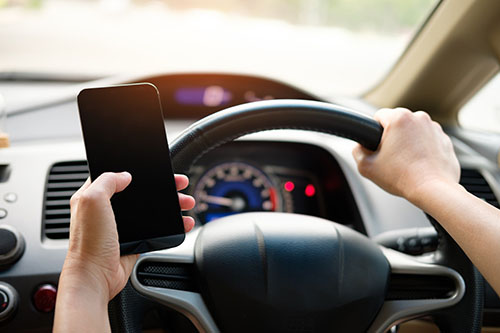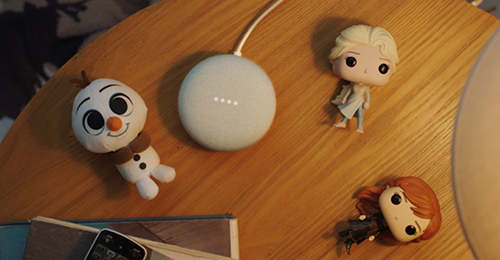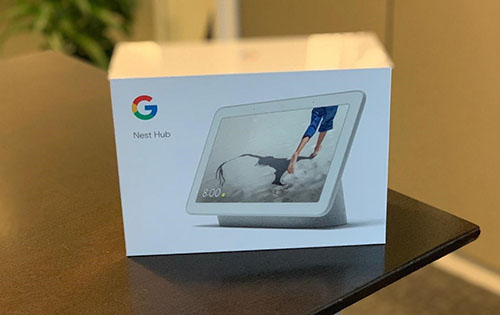During a recent conversation with some friends, I was fascinated to hear them describe the new program that their car insurance company had rolled out. In exchange for a savings of up to 25% on their car insurance, customers are required to download a smartphone app that tracks their driving habits. At the surface this seems like a good idea. Who wouldn’t like saving money on a necessary service? However, my skeptical mind immediately jumped to several obvious pitfalls of letting my car insurance company know exactly what I am doing every time I drive. I have a clean driving record with no recent infractions, but like anyone, I sometimes rush when running late.

Source: intact.ca
There is something fundamentally unsettling in knowing that your whereabouts are being tracked every time you leave the house. There are countless books and movies on the topic of a dystopian future where the movements of every citizen are tracked. It is naïve to think that we aren’t already well down this path and have our online behavior tracked by the likes of Google, Facebook and the cellphone network carriers. At least they aren’t quite so overt about it as this particular insurance program. What if you are in a hurry one day and go over the speed limit a little bit… or a lot? What if you don’t notice a change in speed limits and unknowingly exceed the speed limit on a section of road? Will the insurance company still cover you if you get into an accident while speeding or making a wrong turn now that they know the exact details of the incident? What happens if someone hacks into the car insurance app and can track when you are away from your house and how far away from home you are?

Source: Pexels.com
Those of us who have purchased voice activated home speaker devices like an Amazon’s Alexa or Apple’s HomePod have invited these tech giants into our homes to listen to our everyday conversations. (Ironically, the same people who told me that they had signed up to allow their insurance company track their whereabouts and driving habits had unplugged their Amazon home speaker device after ‘Alexa’ chimed in on one of their conversations. They found this invasion of their privacy too much to bear.)

Source: t3.com
Amazon has come under criticism on the design of the Alexa device, as the default setting is set to be always listening. While the company claims that the data collected remains on the device unless ‘Alexa’ has been activated (with a voice command), it is hard to know what is happening in the background in the inner workings of the device and how much data is stored and for how long. I own an Apple HomePod speaker system and perhaps it is simply a coincidence, but I have seen ads for things that I have recently talked about in private conversations at home pop-ups or banner ads online. This strongly suggests that these tech giants are listening to my conversations, as the coincidence is too strong to ignore.
Facebook has also entered the fray with their own home connected device with a different approach to voice activation and a full video screen and camera for connecting with friends, browsing the web (and of course looking at Facebook and Instagram content). Perhaps anticipating the public’s uneasiness of having a visual portal into their home, the device comes with a camera cover that slides over the lens as a built-in feature. It is as though they are saying: “We know you don’t trust us, so we’ll save you the trouble of putting a sticker or piece of tape over the camera.”
Google’s purchase of the smart-thermostat company ‘Nest’ has launched their foray into the home products market. Google recently re-branded all their in-home devices under the Nest label and the product line-up now includes the Nest Home assistant that has a screen, speakers and integrates into the full slate of Nest products as well as third-party smart-home products like light switches and audio systems.

Source: nest.com
Last week at a shopping mall, I toured a pop-up installation that was an odd partnership between Google and Disney, in joint promotion of the upcoming Disney film ‘Frozen II’. The installation was a ‘Frozen’ themed model home where each room was built-out in to match one of the characters from Disney’s ‘Frozen’ franchise and equipped with the latest Google Nest smart-home devices. The installation showcased how various Google Nest devices integrates into the home and daily life. Each room showed off the control of various functions through voice commands like turning on music and lighting, as well as searching the internet and showing how-to recipes from Google owned YouTube on the Nest Home Hub’s built-in screen in the kitchen. The Home Hub device even includes gesture controls and will stop a video by simply raising a hand at the screen.
Thinking this through, the device not only knows your search and viewing habits, but also knows when you are home, what room you are in, has a microphone that listens for commands and now has a camera that is watching you for gestures.
Google recently made a bid for the smart-watch and fitness tracking company ‘Fitbit’, further expanding their data-collection reach into personal devices and health information. If you happen to be wearing a Fitbit it would have an even deeper knowledge of your heart rate and could perhaps even extrapolate your state of mind. What could possibly go wrong? This massive collection of personal data could be the basis for any number of science fiction plots.
Am I beginning to sound paranoid?
I recently finished reading whistleblower Edward Snowden’s biography detailing the access that he claims the US government and NSA have on everyone’s personal data and communications. He claims that essentially every email, phone call, text message, internet search, purchases and personal whereabouts (based on cell tower triangulation of your mobile phone) is being stored and can be accessed at any time without a warrant through US government programs called ‘Stellarwind’ and ‘Hemisphere’. Not that I have anything to hide, but the claimed existence of these systems and the potential to use them without oversight does seem to overstep the bounds of an individual’s right to personal privacy. (A full discussion on this topic is too much for this blog post, but endless news articles are available on the topic. Snowden’s book ‘Permanent Record’ is a fascinating read.)
Ignoring the government’s reach into my life, (they already know my income, employer, taxes paid, home address etc.) think about the data that Google has on most users. I don’t use Gmail, as I find having an algorithm generate ads that appear based on the contents my inbox too invasive. (My other excuse for not switching to what is probably a better service, is that it is too much hassle to switch from my old ‘Hotmail’ account that I have had for nearly 20 years.) However, I almost exclusively use Google for search (sorry Microsoft – ‘Bing’ search just doesn’t cut it) and often use Google owned YouTube to find useful how-to videos, recipes, listen to music and of course the usual mindless internet memes and cat videos that come my way. Google Maps is a far better mapping app than the other options available and I use it almost exclusively, so I am certain that my whereabouts is tracked most of the time. I also use Google Photos to back-up all of my photos, as unlimited free storage of photos online as a backup was hard to resist… so they also have a play by play look into my personal life, and that of my friends and family. With facial recognition I can hardly imagine all of the connections that the algorithms are making.

Source: author’s iPhone
As I left the Google/Disney Frozen house at the mall, I was offered a tasty holiday themed sugar cookie and a coupon for 60% off a new Nest Home hub device. After debating the need to extend Google’s reach further into my home and personal life, and in the name of gathering material for future blog posts, I surrendered to the allure of the Google’s promotion and purchased a new Nest home hub. Of course having a device that gives me the convenience of YouTube videos on my kitchen counter for showing videos of recipes (not cat videos) while cooking was alluring, not to mention the deep discount on the original price. Stay tuned for a future blog post and I’ll let you know how the further integration of technology into my life is going.
The opinions expressed in this report are the opinions of the author and readers should not assume they reflect the opinions or recommendations of Richardson GMP Limited or its affiliates. Richardson GMP Limited, Member Canadian Investor Protection Fund. Richardson is a trade-mark of James Richardson & Sons, Limited. GMP is a registered trade-mark of GMP Securities L.P. Both used under license by Richardson GMP Limited.
All photo credits to the Author unless otherwise noted.